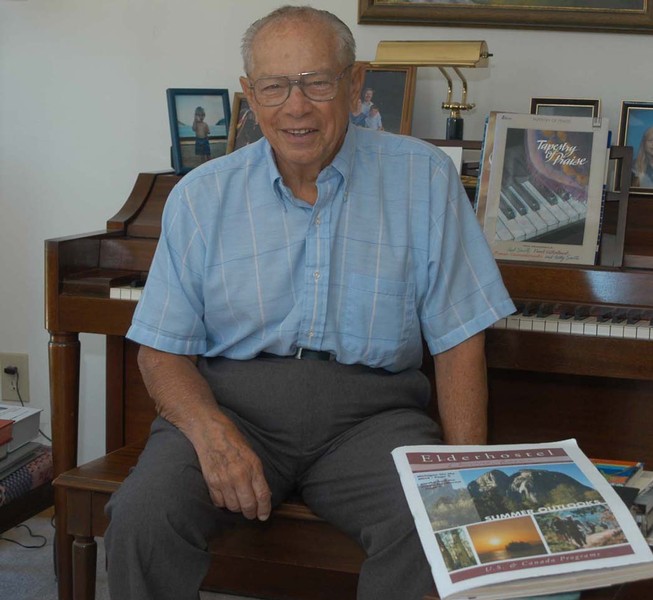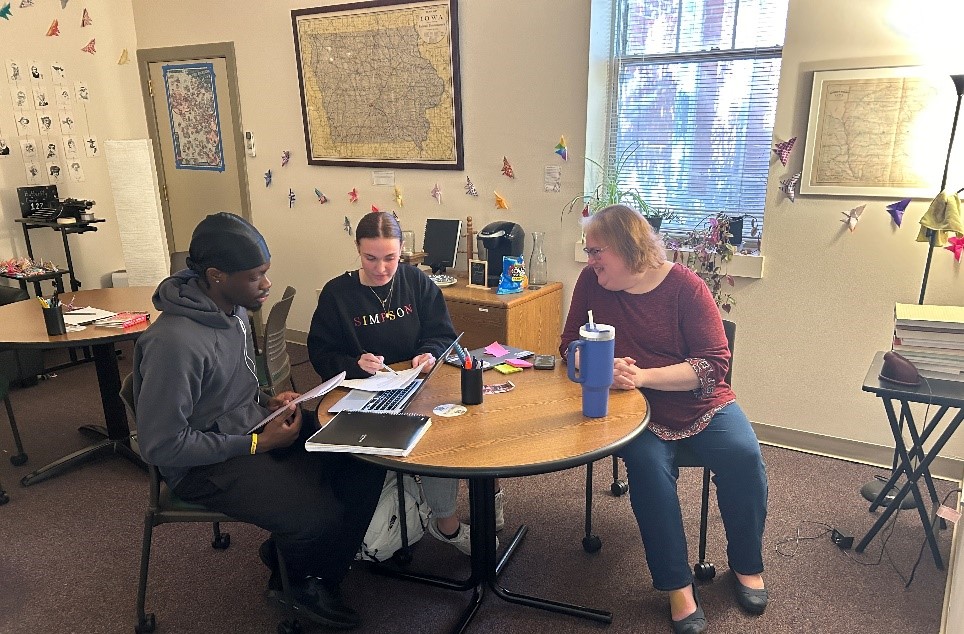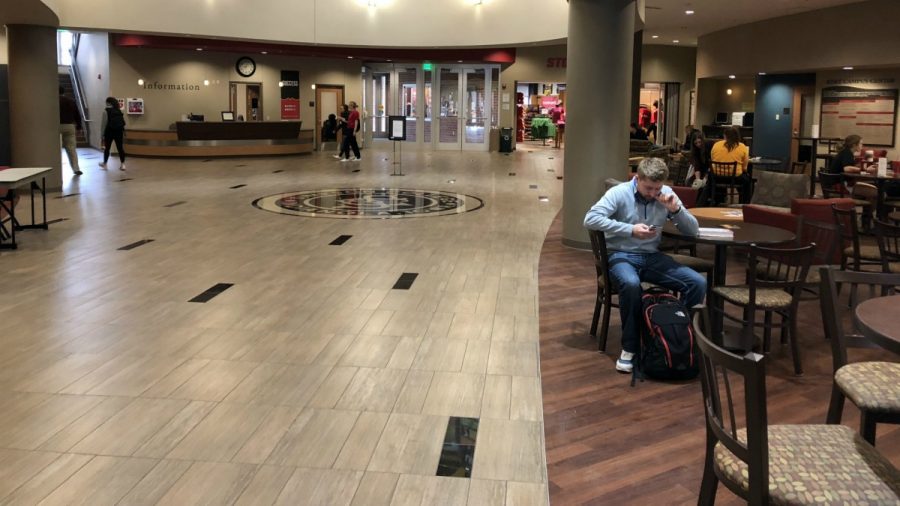E. G. Booth a revered professor
February 5, 2004
For 30 years, E.G. Booth thrived on teaching Simpson studentshow to teach.
After struggling for about a year with the disease AmyotrophicLateral Sclerosis, more commonly known as ALS or Lou Gehrig’sdisease, this revered Simpson College emeritus professor passedaway on Jan. 21.
Booth was born in 1923 near the Corydon area in Wayne CountyIowa. He attended Grinnell College for his undergraduate degree andreceived his doctorate from the University of Iowa.
After receiving his doctorate, he taught at Grinnell College fornine years and coached the track team, according to Bruce Haddox,vice president and dean for academic affairs.
Booth then taught at Simpson for the next 30 years beforeretiring in 1988.
“He taught secondary methods, tests and measurement andscience,” said Jackie Crawford, professor of education and head ofthe department of education. “He conducted the secondary studentteaching seminar and observed all of the secondary studentteachers.”
Crawford met Booth while she was a student in the educationdepartment. Later, Booth became her colleague and boss.
“He took a personal interest in all of the education students,”said Crawford. “He loved to see graduates return for visits, and heremembered so many things about every student.”
People who had Booth as a professor remember him fondly.
A current faculty member, Bruce Wilson, assistant professor ofphysical education and men’s head basketball coach, was instructedby Booth while attending Simpson.
“One that really sticks out with me is how much of a caringperson he was,” said Wilson. “He was very interested in what wasgoing on, and he would always take time if you needed his time. Hewas very, very supportive as a professor and a person. Being astudent and then also having the opportunity to come back and beone of his colleagues was very special.”
Booth was not only a professor at Simpson. He was involved inmany other things as well.
“He was a very athletic man,” said Haddox. “He was a formerfootball coach here at Simpson before he was the chair of thedepartment of education.”
Booth also was active in the Methodist Church and enjoyedplaying the trombone.
“He played in the Des Moines Community Band,” said Haddox. “Itwas appropriate that they played taps on the trombone at hisfuneral.”
After retiring in 1988, Booth remained an active member of theSimpson community.
“He used the gym and swam every day,” said Haddox. “He alsoworked with alumni issues.”
Booth also helped Simpson College retain a connection with theIndianola community.
“He was the secretary and organizer of the Indianola-SimpsonBreakfast Club,” said Haddox. “It was held the first Saturday ofevery month at 7 a.m at Pfeiffer Dining Hall. It was some formalway of getting town people and Simpson people together.”
Although he had ALS, Booth still managed to attend the BreakfastClub meeting held this January.
ALS is a disease that affects the motor neurons, according tothe ALS Association’s Web site.
The neurons deteriorate, causing the sufferer to lose control ofhis muscles leading to paralysis.
Booth only suffered from ALS for a year.
“It moved rapidly, but it took awhile to diagnose,” saidHaddox.
According to the ALS Association, ALS can be difficult todiagnose since the symptoms may vary greatly from person toperson.
Booth had complained of back aches before his disease wasdiscovered.
Throughout his suffering of the disease, Booth maintained hispositive outlook on life.
Even though there aren’t any plans for a remembrance ceremonyfor Booth to be held on campus, he will be remembered for manyyears to come throughout the Simpson community.
Each year at Honors Convocation, a scholarship is given in hisname.
The E.G. Booth Award is “given to someone who is in educationand athletics,” said Haddox. “It is given to an outstanding studentwith a high academic record who has also lettered or done well inathletics.”
Booth will also be remembered through his wife and four grownchildren.
“E.G. was one of the finest human beings I have ever known,”said Crawford. “He was a man of honor, faith, and integrity. He putothers before himself, and he contributed his time and effort tomany causes. E.G. was hard working and a dedicated husband andfather. He cared deeply about Simpson College and the people aroundhim. The world was a better place because of E.G. Booth.”






